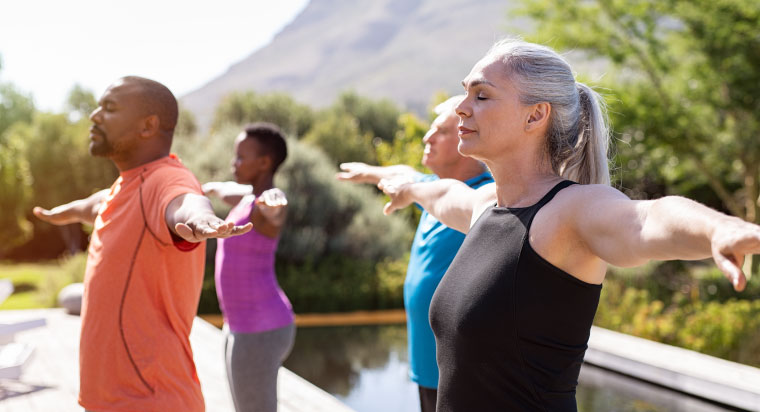Pulmonary rehabilitation is a comprehensive program designed to improve the physical and psychological well-being of people with chronic respiratory diseases. It involves a combination of exercise, breathing techniques, education, and support that can help patients manage their symptoms, increase their physical activity, and improve their overall quality of life. In this blog post, we’ll discuss the importance of pulmonary rehabilitation and how it can benefit those with chronic respiratory diseases.
What is Pulmonary Rehabilitation?
Pulmonary rehabilitation is a structured program that includes exercise training, education, and counseling. The program is designed to help people with chronic respiratory diseases, such as chronic obstructive pulmonary disease (COPD), pulmonary fibrosis, and asthma, to improve their lung function, exercise tolerance, and quality of life. The program is usually led by a team of healthcare professionals, including respiratory therapists, physiotherapists, and dietitians.
How a Pulmonary Rehabilitation Program Works
Pulmonary rehabilitation programs typically last 6-12 weeks and involve a combination of exercise training, education, and counseling. Here’s a breakdown of how a typical program works:
- Assessment: Before starting the program, patients undergo a thorough assessment to determine their current lung function, exercise capacity, and overall health status. This information is used to develop an individualized treatment plan that addresses their specific needs and goals.
- Exercise Training: The exercise component of the program typically involves aerobic and strength-training exercises that are designed to improve lung function and overall physical fitness. Patients work with a respiratory therapist or physiotherapist to develop a personalized exercise plan that takes into account their current fitness level and any physical limitations they may have.
- Education: Patients receive education on their respiratory disease, including how to manage symptoms, use medications properly, and avoid triggers that can worsen their condition. They also learn breathing techniques that can help them manage shortness of breath and other respiratory symptoms.
- Counseling and Support: Patients receive counseling and support from a team of healthcare professionals, including respiratory therapists, dietitians, and social workers. They also have the opportunity to connect with other patients who are going through similar experiences.
- Monitoring and Follow-Up: Throughout the program, patients are closely monitored to ensure that they are making progress and to adjust their treatment plan if necessary. After completing the program, patients are typically encouraged to continue exercising and practicing the skills they learned during the program to maintain their gains.
By following a structured program that addresses their specific needs and goals, patients can experience significant improvements in their lung function, exercise tolerance, and overall quality of life.
Benefits of Pulmonary Rehabilitation
There are several benefits of partaking in a chronic obstructive pulmonary disease pulmonary rehabilitation program. Here are some of them:
- Improved Lung Function
One of the primary benefits of pulmonary rehabilitation is improved lung function. The exercise component of the program helps patients build up their lung capacity and endurance, which can lead to improved breathing and better oxygen delivery to the body. Additionally, patients learn breathing techniques that can help them manage shortness of breath and other respiratory symptoms.
- Increased Exercise Tolerance
Another key benefit of pulmonary rehabilitation is increased exercise tolerance. Through regular exercise training, patients can improve their physical fitness and endurance, allowing them to perform daily activities with less effort and fatigue. This can lead to improved mobility, independence, and overall quality of life.
- Better Disease Management
Pulmonary rehabilitation also provides education and counseling that can help patients better manage their respiratory disease. Patients learn about their condition, how to recognize and manage symptoms, and how to use medications effectively. They also receive support and encouragement from their healthcare team and fellow participants, which can help them stay motivated and engaged in their treatment.
- Improved Mental Health
Chronic respiratory diseases can take a toll on a person’s mental health, leading to anxiety, depression, and social isolation. Pulmonary rehabilitation programs address these issues by providing counseling, support, and opportunities for socialization. By improving a patient’s mental health, pulmonary rehabilitation can lead to a better overall quality of life.
- Reduced Hospitalizations
Patients who participate in pulmonary rehabilitation are less likely to require hospitalization or emergency room visits for respiratory-related issues. By improving their lung function, exercise tolerance, and disease management skills, patients are better able to manage their symptoms and avoid complications that can lead to hospitalization.
Conclusion
Pulmonary rehabilitation is an essential component of the treatment plan for people with chronic respiratory diseases. By improving lung function, exercise tolerance, disease management, and mental health, patients can experience a better quality of life and reduced healthcare utilization. If you or a loved one has a chronic respiratory disease, talk to your healthcare provider about the benefits of pulmonary rehabilitation.
At the Pulmonary Clinic of the Carolinas, we offer comprehensive pulmonary rehabilitation programs that are tailored to each patient’s unique needs. Our team of experienced healthcare professionals provides expert care and support to help patients achieve their goals and improve their quality of life. Contact us today to learn more about our pulmonary rehabilitation services.



 Translate
Translate

